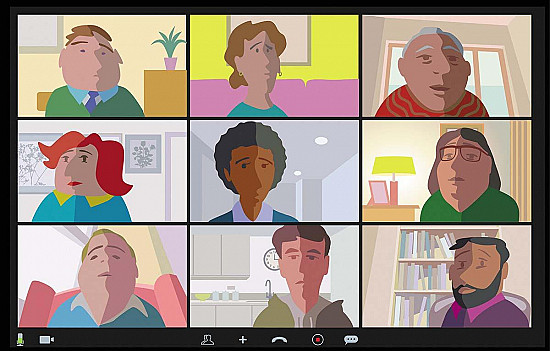Trauma-informed care: What it is, and why it's important
Update
Writing in the October 10, 2018 New England Journal of Medicine, Dr. Eve Rittenberg, assistant professor at Harvard Medical School and practicing physician at Brigham and Women's Fish Center for Women's Health, reflects on the impact the Kavanaugh hearing and #MeToo movement have had on patients who have experienced sexual violence. Important principles of trauma-informed care — including ways to ask permission, offer control, and find support — described in her article and in Dr. Monique Tello's post below can make a real difference to many women and health care professionals alike.
Many years ago, when I was a trainee, I helped take care of patients at a family medicine clinic.* One day, a school-aged brother and sister came in for their annual physicals. They were due for vaccines. Neither wanted any shots, and they were both quite upset. "You'll do what the doctor tells you, is that clear?" ordered the mother. She and the nurse worked together to hold the sister's arm down. But just as the nurse was about to deliver the injection, the young girl jerked her arm away and ran to the opposite corner of the room, crying. The brother then ran over and stood in front of her, his arm outstretched, guarding, and yelled, "Get away! Leave her alone!" At first, the focus was on forcing them to have their shots, which were required for school. But it only made things worse. The young girl screamed, the boy fought, no one could calm them, and everyone was annoyed.
One of the senior doctors finally conceded: Let them go, we'll have to work on this. But that family never returned.
Months later, we learned that the children had been removed from the home by the Department of Children and Families for parental abuse. I could only imagine what had been happening.
*This vignette is based on a composite of several cases I have been involved with over the years. All potentially identifying details have been changed to protect patient privacy.
The prevalence of trauma
The CDC statistics on abuse and violence in the United States are sobering. They report that one in four children experiences some sort of maltreatment (physical, sexual, or emotional abuse). One in four women has experienced domestic violence. In addition, one in five women and one in 71 men have experienced rape at some point in their lives — and 12% of these women and 30% of these men were younger than 10 years old when they were raped. This means a very large number of people have experienced serious trauma at some point in their lives.
Medical exams by definition can feel invasive. They often involve asking sensitive questions, examining intimate body parts, and sometimes delivering uncomfortable — even painful — treatments. So, it is important that healthcare providers are mindful of the fact that so many people come to that healthcare interaction with a history of trauma.
Could the case I described have been handled differently?
There have been some recent news articles about a relatively new (and improved) way for health professionals to approach patients. This is called trauma-informed care. Dr L. Elizabeth Lincoln is a primary care physician at MGH who has trained medical professionals and students about approaching patient care with an understanding of trauma. She explains: "Trauma-informed care is defined as practices that promote a culture of safety, empowerment, and healing. A medical office or hospital can be a terrifying experience for someone who has experienced trauma, particularly for childhood sexual abuse survivors. The perceived power differential, being asked to remove clothing, and having invasive testing can remind someone of prior episodes of abuse. This can lead to anxiety about medical visits, flashbacks during the visit, or avoidance of medical care."
What does trauma-informed care look like?
The first step is to recognize how common trauma is, and to understand that every patient may have experienced serious trauma. We don't necessarily need to question people about their experiences; rather, we should just assume that they may have this history, and act accordingly.
This can mean many things: We should explain why we're asking sensitive questions. I might say, "I need to ask you about your sexual history, so I know what tests you may need." We should explain why we need to perform a physical exam, especially if it involves the breasts or genitals. If someone is nervous, we can let them bring a trusted friend or family member into the room with them. I've had many female patients hold someone's hand during a pelvic exam. We can tell them that if they need us to stop at any time, they can say the word. If someone refuses outright to have a certain exam or test, or if they're upset about something (like having vaccinations), we can respond with compassion and work with them, rather than attempting to force them or becoming annoyed.
For someone who has experienced trauma, the hospital or doctor's office can be a scary place. Dr. Lincoln explains: "Patients often do not volunteer such information about prior experiences, because of guilt or shame. Medical professionals often ask about safety in a patient's present relationships, but few ask about past experiences. A simple question such as, "Is there anything in your history that makes seeing a practitioner or having a physical examination difficult?" or, for those with a known history of sexual abuse, "Is there anything I can do to make your visit and exam easier?" can lead to more sensitive practices geared to developing a trusting relationship. Patients can advocate for themselves by explaining to physicians their anxiety about medical visits, why this is so, and what they have found helpful or harmful in prior healthcare encounters."
Trauma comes in many forms
It is also important to note that there are many types of trauma. A colleague of mine has a child who survived a life-threatening illness. Prior to his ICU stay, he never flinched at vaccines; since his hospitalization, any needle sticks make him extremely anxious. Another colleague describes how after years of invasive infertility treatments, and despite becoming a mother, she sobbed uncontrollably at her simple routine gynecologic exam, because it touched such a nerve of helplessness and failure. Trauma-informed care is the open-mindedness and compassion that all patients deserve, because anyone can have a history that impacts their encounter with the medical system.
We as providers need to recognize that many, many patients have a history of physical, sexual, and/or emotional abuse, as well as serious illnesses and negative experiences in the medical setting, and we need to learn to respond with empathy and understanding.
Sources
Sexual violence facts at a glance. National Center for Injury Prevention and Control, Division of Violence Prevention.
The National Intimate Partner and Sexual Violence Survey (NISVS): 2010 Summary Report. National Center for Injury Prevention and Control, Centers for Disease Control and Prevention, 2011.
Child maltreatment facts at a glance. National Center for Injury Prevention and Control, Division of Violence Prevention.
Child maltreatment 2012. US Department of Health & Human Services Administration for Children and Families, Administration on Children, Youth and Families Children's Bureau.
Violence, Crime, and Abuse Exposure in a National Sample of Children and Youth: An Update. JAMA Pediatrics, July 2013.
The National Intimate Partner and Sexual Violence Survey. Centers for Disease Control and Prevention.
Bringing trauma-informed care to children in need can ease toxic stress. StatNews, December 2017.
Understanding trauma-informed care. Mass General News, January 2014.
Trauma-Informed Care in Behavioral Health Services. Substance Abuse and Mental Health Services Administration, 2014.
About the Author

Monique Tello, MD, MPH, Contributor
Disclaimer:
As a service to our readers, Harvard Health Publishing provides access to our library of archived content. Please note the date of last review or update on all articles.
No content on this site, regardless of date, should ever be used as a substitute for direct medical advice from your doctor or other qualified clinician.
















